March 2022 Reading Round-Up
The best and worst of my reading month
Welcome to the March 2022 Reading Round-Up. Each month I write about the books I've read and rank them from worst to best.
This is a special post for me. Exactly one year ago, I had an idea to start a blog about the books I was reading to allow me to keep writing after graduation and give me an inside look into the publishing world. One year later, I can see that writing this blog has encouraged me to read more, think critically, and write concisely (or at least attempt to). Thank you to everyone who continues to read my (increasingly) lengthy posts and for sharing the blog with people who might enjoy it. Looking ahead, I'm excited to see how the blog develops so if you have any ideas for what you'd like to see in the future or just have a book to recommend, please feel free to let me know either by leaving a comment below or sending me an email. Until then, please enjoy!
14. Truth and Other Lies – Maggie Smith
Fiction, 340 pages
Megan is looking for a fresh start after losing her job as a local reporter in New York and moving back home to Evanston, Illinois. While struggling to find a new job, Megan stumbles across Jocelyn Jones, a famous national reporter similar in stature to Diane Sawyer or Katie Couric. Jocelyn promises Megan that she will introduce her to journalism contacts in the Chicago area in return for a short-term gig working as her publicist to promote her new memoir. Shortly after taking the job, however, an anonymous Twitter account begins accusing Jocelyn of plagiarism, and it becomes Megan’s mission to figure out what’s going on and if the accusations have merit. Introduced as side-characters are Megan’s mother who is running for Congress on a conservative anti-abortion platform anathema to Megan’s beliefs, and her childhood best friend Becca who cheats on her husband and needs an abortion herself. These side-threads are completely separated from the main plot until the point in the book when Smith needs to generate conflict, during which Megan’s mother and Becca are quickly thrown into the tumult before their issues are tidily resolved to Megan’s benefit. While the plot moves relatively quickly, I was not particularly impressed with Smith’s writing, including how key elements of the mystery were always revealed at the most convenient moment. The way in which Smith wrote Megan’s character as wholly righteous with an unimpeachable understanding of ethics often made the dialogue and character development feel forced.
Rating: 6.5/10
Thank you to Ten16 Press for the advance reader copy of of this book.
13. The Roughest Draft - Emily Wibberley and Austin Siegemund-Broka
Fiction/Romance, 317 pages
Katrina and Nathan are a successful writing duo, known nationally for their breakout best-selling novel. Three years after its publication, however, Nathan and Katrina are not on speaking terms, leaving the final book in their contract with their publisher unfulfilled. When Nathan’s first solo book is panned by reviewers and the publisher won’t pick him up for another unless he teams up with Katrina again, he decides to push past his conflict to write this novel. Katrina on the other hand, scarred by success, has not written anything for three years but agrees to write with Nathan one more time after discovering her manipulative finance (also her editor) is struggling financially. It should be no surprise to readers that they reconcile their differences and rediscover their lost feelings for each other while on their writing retreat in Florida. The Roughest Draft sports a classic haters-to-lovers plot line, but thinking back, I’m still not sure if I fully understand why they ended up hating each other for so long anyway.
Rating: 7/10
12. The Unsinkable Greta James - Jennifer Smith
Fiction, 320 pages
Following the sudden death of her mother, indie rockstar Greta James has a breakdown on stage that goes viral. Traumatized by the confluence of events, Greta can not bring herself to keep performing, and her music career, which was once lauded as extremely promising, becomes less certain. When her brother calls to ask if she will accompany her father on an Alaskan cruise that was supposed to be her parents’ fortieth wedding anniversary trip, Greta has no choice other than to say yes. Although her relationship with her father is frayed - he never supported her music career despite her success - this trip is a chance to make things better. Over the course of the one week cruise, Greta meets and develops a relationship with a recently-separated Columbia professor and writer, becomes closer with her father, learns how to live with her grief, and re-discovers her passion for music and performing. This is certainly a lot of growth to take place over the course of one week, and the different issues in Greta’s life are all resolved at an expedient time for the movement of the plot. While the book is meant to be uplifting, I think the best writing in this book takes place when Greta and her father discuss and deal with their grief, which felt like honest portrayals of tough issues. Otherwise, the book moved forward predictably, if not a bit conveniently.
Rating: 7/10
Thank you to Ballantine Books for the advance reader copy of this book.
11. Summer Light, and Then Comes the Night - Jon Kalman Stefansson
Fiction, 246 pages
Summer Light, and Then Comes Night is set in a small Icelandic town sometime in the recent past where everyone knows everyone and amenities are sparse. Each chapter is a connected short story, linking together different parts of the village as it slowly moves towards the end of the 20th century. A new road is paved that cuts the time it takes to reach Reykjavik and connects its residents to new opportunities, products, and ideas. The town’s first restaurant is opened to equal parts fanfare and grumbling – why pay someone to cook for you when you could make it yourself? And the director of the local Knitting Company decides to learn Latin after he has a dream full of the language, and ends up living in his own reality. I really wanted to enjoy this book but struggled to connect with the characters and the author’s verbose writing style. The allusions to the inevitability of death in each story are heavy, which I felt detracted from the enjoyableness of the reading experience and instead made it seem like the author was trying to forcefully add depth and meaning to his stories.
Rating: 7/10
10. Beasts of a Little Land - Juhea Kim
Historical Fiction, 403 pages
Beasts of a Little Land is a sweeping saga that follows a handful of characters over fifty years in Korea. In 1917, Jade is sold by her mother to a courtesan school in Seoul with the hopes that she will have increased opportunities despite the low status of high-class prostitutes. While in Seoul, Jade befriends her fellow courtesans, the leader of a children's street gang, and an impoverished young rickshaw driver. At the same time, a rich businessman with ties to the leader of the courtesan school is conflicted when his old friend from university arrives asking for financial support to fund the Korean resistance against the Japanese. Throughout the course of the book, readers follow each of these characters as they experience hardship and success against the backdrop of the Japanese occupation of Korea, World War II, and partition. Kim goes to great lengths to include a myriad of characters who each make up an element of Korean politics and society. Unfortunately, however, it felt at times that Kim stretched herself thin writing from the viewpoint of so many different characters instead of focusing on one or two perspectives and developing their voices. As a result, some of the plot points were disjointed and the dialogue and personal development felt generic.
Rating: 7/10
9. The Cover Wife - Dan Fesperman
Fiction/Spy Thriller, 320 Pages
As a CIA agent based in Paris in the late 1990s, Claire Saylor has had limited opportunities to advance despite her obvious skill. When she gets the opportunity to go undercover as the wife of an American academic visiting Germany to promote a book with a controversial interpretation of the Quran, she jumps at the chance. After she arrives, however, Claire is assigned the additional responsibility of surveilling a local group of radicals, although it is unclear to the CIA and FBI how serious of a threat they actually pose. The book is a mix of fact and fiction. Claire, her colleagues, and her assignment with the academic are fictional, but the surveillance of this particular terrorist cell are real as are the tumultuous dynamics between the FBI and the CIA. And, most real of all, are a few of the men that Fesperman highlights in this German terrorist cell who hijack two of the airplanes on September 11, 2001.
While the plot arc was clearly well-researched and the story moved at a fast pace, the writing was often choppy and relied on cliché descriptors, i.e. reading into someone’s piercing eyes, to set the scene. I also felt like Fesperman’s understanding of Islam (especially when he was writing from the perspective of members of the terrorist cell) was fairly one-dimensional and reminiscent of the post-9/11 backlash that prompted mass stereotyping and domestic surveillance. The strongest portions of this story were the ones written from the perspectives of Claire and her FBI counterpart. Indeed, the suspense and intrigue of the whole book would probably have been improved if it had all been written from these two perspectives, especially given the clear knowledge that Fesperman has about espionage tactics and their organizing agencies.
Rating: 7.5/10
8. The Family Chao - Lan Samantha Chang
Fiction, 297 pages
The Family Chao is a family drama set in Haven, Wisconsin in the family’s restaurant, Fine Chao. The novel begins with a luncheon at the center of the Chinese-American community in Haven, the Spiritual House Buddhist Temple, where the family matriarch, Winnie, has recently moved after leaving her philandering and crude husband, Leo. The purpose of the luncheon is for Dagou, the eldest son and head chef at Fine Chao, to ask his father for partnership in the restaurant. The request is pushed to the annual Christmas party, which is dedicated to Winnie who recently suffered a nearly fatal medical incident. The party is extravagant, Dagou and Leo fight, and the next morning Leo is found dead in the restaurant’s walk-in freezer.
Part two of the book follows the aftermath of this party and Leo’s death, mainly the murder trial in which Dagou, who readers subconsciously understand to be innocent, has been charged. The trial brings to life underlying themes present throughout the book, including questions of identity and assimilation, which is highlighted by the three distinct personalities of the Chao sons. By the second half of the book, however, some elements that initially seemed central given the level of detail and time assigned to them felt lost, including Winnie Chao’s decision to move into the Spiritual House and the death of an elderly Chinese man after a failed attempt at CPR by James in the opening scene of the book. Despite these quibbles, the writing is engaging, particularly the mouth-watering descriptions of the food, which is not a surprise given Lan Samantha Chang’s background as the director of the prestigious Iowa Writers Workshop.
Rating: 8/10
7. Notes on a Silencing - Lacy Crawford
Memoir, 386 Pages
In 1990, at the elite St. Paul's boarding school in New Hampshire, two senior boys raped 15-year-old student Lacy Crawford. While Crawford did not initially report the rape or the one that took place weeks later - indeed, Crawford's understanding at the time of what constituted rape was woefully warped - the subsequent PTSD, diagnosis of herpes, and social trauma eventually led her to share the events with her mother who reported to the school. St. Paul’s, a storied boarding school filled with the offspring of the rich and powerful, initially tried to cover up what took place and then, after a police report was filed, embarked on a blackmail campaign against Crawford that threatened her spot at the school, her college admissions, and her reputation. These tactics, and the ability with which St. Paul's attempted to control even the police department in town, were publicly exposed a few years ago when other women came forward about their sexual assaults at the hands of both teachers and students. Notes on a Silencing, Crawford's memoir, is a reflection on the thirty years since her assault and the ways in which her life has been entangled not just by the rape, but also by the institution itself. Crawford writes lyrically and fiercely about her experience as an impressionable 15-year-old wrapped up in the allure of the social politics of an elite school as well as the people and institutions that betrayed her.
Rating: 8/10
6. Other People’s Clothes - Calla Henkel
Fiction, 306 pages
Zoe and Hailey are two New York art students who move to Berlin in 2008 for a year abroad. Upon arrival, they find an apartment available to sublet from the thriller-crime writer Beatrice Becks and her mother, who claim to be spending the year in Austria while Beatrice participates in a writing fellowship. A few months into their stay in Berlin and disappointed with their lack of assimilation, Hailey and Zoe begin to discover clues that make them think they are being watched by Beatrice. After reading an interview in which Beatrice states that her next novel is about a pair of roommates in Berlin, Hailey decides that she and Zoe should control the narrative and begin to throw elaborate parties in the apartment that gain traction in Berlin's nightlife coverage. Zoe, who appears desperate for acceptance, goes along with Hailey's increasingly hairbrained schemes as it becomes increasingly clear that they are being watched, resulting in the book's exciting and dramatic climax.
Although the story is supposed to draw parallels with the Amanda Knox trial from 2007, Amanda Knox’s press coverage and notoriety are also incorporated throughout this novel, subtly influencing Zoe and Hailey’s decisions during their time abroad one year later. Where the book lost some points from me was the occasional convenience with which elements of the mystery were revealed and resolved, such as when a random German man appears at their front door and for reasons unbeknownst to Zoe and the reader, begins appraising the apartment and nonchalantly discovers a secret back apartment attached through a hidden door, all but confirming that they are being watched. Otherwise, I very much enjoyed this twisty novel and found the premise and writing to be extremely clever.
Rating: 8.5/10
5. A Very Nice Girl - Imogen Crimp
Fiction, 320 pages
Anna is a 24-year-old opera student with a scholarship to a prestigious London conservatory. She spends her days in vocal lessons and language classes, sings at a hotel jazz bar at night to make ends meet, and sleeps in the cheapest living accommodation that she can find: a singular room in the home of a couple that complains when anyone uses spices in their cooking, takes long baths, or flushes the toilet after midnight. Her voice however, is promising, and although the chances of making it in the opera world are slim, Anna has the potential. One night, after finishing a set at the jazz bar, Max, a man fourteen years her senior who works at a large financial institution asks Anna on a date. Curious, Anna says yes, and quickly becomes entranced by the allure of Max's wealth, including the nice restaurants he takes her to, the fancy high-rise apartment he owns with sweeping views of the city, and the extra cash he gives her to make ends meet. She knows that Max is not being completely forthcoming and yet, the challenge of the relationship makes her seek his approval even more. Anna slowly becomes unhealthily attached to Max, going out of her way to accommodate his schedule even if it means forgoing her commitments at school, including a prestigious role that she is unexpectedly cast in, which puts her scholarship and opera career in jeopardy. A Very Nice Girl is an impressive debut by Imogen Crimp, who has successfully written a character so believable and yet unlikable, that I wanted to yell at the pages to tell her to reverse course. The book moves slowly between the quotidian scenes of Anna's life without much contrived action, but this is what makes the elements of this book compelling and realistic.
Rating: 8.5/10
4. The Orchard - Kristina Gorcheva-Newberry
Fiction, 385 pages
Anya and Milka are best friends coming of age in the Soviet Union in the 1980s as the country opens up and then crumbles. As members of the perestroika generation, Anya, Milka, and their classmates have a unique vantage point within the Soviet consciousness. They are old enough to have lived under the Soviet Union's iron fist but young enough to have hope for the future as new leadership and policies signal change to come. At home, Anya's parents and grandmother talk frequently about the hardships of the Second World War, life under Stalin, and argue over the foundations of the Soviet Union. Amongst friends, however, Anya and Milka experience a life freer than her parents when they read banned books, listen to Queen, learn English, and talk about traveling the world. But even within this perestroika generation exists a microcosm of Soviet political conflict - one friend argues for change while another who’s family benefited during the height of the Communist era argues for stasis. As Anya and Milka enter young adulthood, the Soviet Union collapses, and so too do the lives and dreams that Anya and Milka have built together. The Orchard is Gorcheva-Newberry's debut novel, and in many ways it mirrors the experiences her own life. Above all, however, this is a book about a beautiful friendship navigated through the dangerous waters of circumstance, politics, and hardship beyond control.
Rating: 9/10
Thank you to Ballantine Books for the advance reader copy of this book.
3. The Netanyahus - Joshua Cohen
Fiction, 237 pages
Set in upstate New York in the late 1950s, The Netanyahus follows Ruben Blum, a taxation historian at the fictional Corbin College, as he shepherds Benzion Netanyahu through the search and interview process for an academic position at the institution. Blum has been selected for this role not because he holds any overlapping academic expertise with Netanyahu, but because he is also Jewish, and in the late 1950s, as the only Jewish professor on the campus, is deemed the most-qualified person to connect with and assess Netanyahu. Ruben Blum and his family members are exceptionally dynamic characters who humorously tackle big questions of anti-Semitism, Jewish-American identity, and academia writ-large, and I believe the story would have been interesting even without the addition of the Netanyahus. What makes the story exceptional, however, is the introduction of Benzion Netanyahu, father of future Israeli Prime Minister Binyamin Netanyahu, and the rest of the family who arrive unexpectedly in tow with Benzion and make themselves (too) comfortable in the Blum's home. The three boys are raucous, the mother is vocally discontent with the conditions of their current life, and Benzion is insulted by his reception at Corbin College. The situation is certainly fictionalized, but also has roots in a real encounter that the author, Joshua Cohen, came across and brought to life stupendously. Although it feels like this novel has flown mostly under the radar - I would never have heard of it if I had not come across a review in the New York Times - this is one of the most interesting and entertaining books that I have read in a long time.
Rating: 9/10
2. My Name is Lucy Barton - Elizabeth Strout
Fiction, 240 pages
Sitting in a hospital bed in New York City with appendicitis, Lucy Barton reflects on the differences between her impoverished childhood in Amgash, Illinois and her current life as an adult. Her reflection is aided by a surprise visit from her mother who has never been to New York or even been on an airplane. The unexpected bonding and tenderness that they experience adds nuance to a childhood full of isolation and some trauma that against all odds Lucy has escaped in the process of building a new family and life in the city. This is my favorite kind of novel, in which nothing happens and yet everything happens. Strout is not writing about any one spectacular or exceptional moment, but rather the quotidian details that make up the life of one woman. This book is the first of three books about Lucy, including Strout’s most recent, Oh, William, and is also connected to the Olive Kitteridge collection. The only solace I had in finishing this short, beautiful book was the knowledge that there is more by Strout and about Lucy to read.
Rating: 9/10
1. Groundskeeping - Lee Cole
Fiction, 336 pages
Owen Callahan is an aspiring writer who moves back to Kentucky in 2016 to live with his conservative grandfather and uncle. During the day he works as a groundskeeper at a prestigious college in Louisville, which allows him to take one free writing class and gives him a chance at the non-blue collar life that he wants for himself. Owen has spent most of his life adrift. He grew up in western Kentucky with evangelical conservative parents from whom he felt removed. Looking to get a fresh start, Owen moved to Colorado to work as a tree-trimmer, but quickly fell into a pattern of drug abuse that ended in him living in his car. In many ways, moving back to Kentucky, a place that he feels connected to and yet wants to desperately leave, feels like defeat. Soon after enrolling in his class, Owen meets and becomes involved with Alma, the winner of a prestigious writing in residence fellowship on campus. Alma is the archetype of a liberal millennial and the exact inverse of Owen's family. Alma is the daughter of Bosnian Muslim refugees, grew up upper-middle class in the suburbs of Washington, D.C., and attended Princeton. Her fellowship is only for published writers and her feeling of academic and intellectual superiority over Owen is apparent throughout their relationship despite their clear feelings for one another.
Lee Cole is an incredible writer and this is a fantastic debut. I was so impressed with Cole's ability to write about the political fragility of America through the experiences of one couple. In the scenes in which Alma meets Owen's parents the tension and awkwardness is palpable, and the stark divide between two groups of people so stubbornly encamped in their political beliefs was on full display. Cole's descriptions of Kentucky and the contrasts between liberal Louisville full of chic restaurants serving upscale southern food, Owen's grandfather's dilapidated house in the outskirts of the city filled with used McDonald’s wrappers, and the trailer parks that dot the road on the way to Owen's parents' homes highlighted both the reinvention of the south as well as its decline. This is a powerful novel with so much to think through and unpack.
Rating: 9/10
Thank you to Penguin Random House for the advance reader copy of this book.
If you like what I’ve written or want to see more reviews, recommendations, and round-ups about a wide range of novels, histories, and more, consider subscribing now by entering your email. It’s free and it’s about books. What’s not to like?
Want to see last month’s round up? You can find that here.

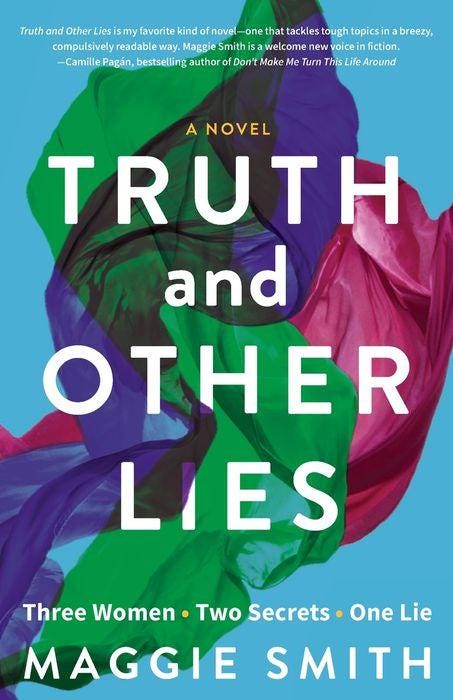
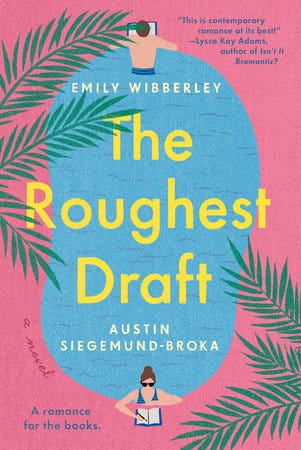
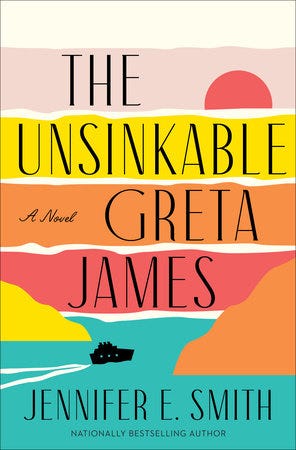
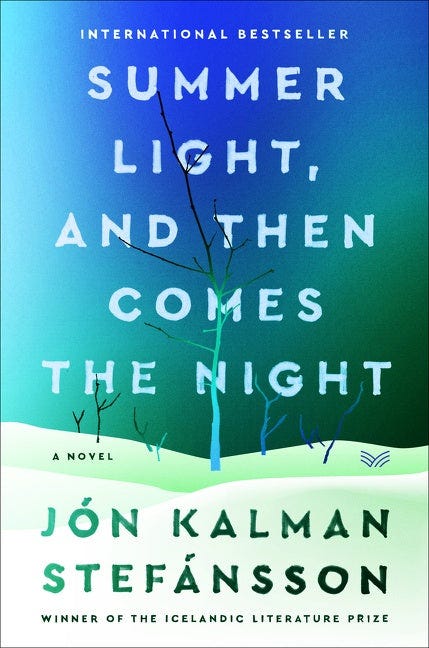
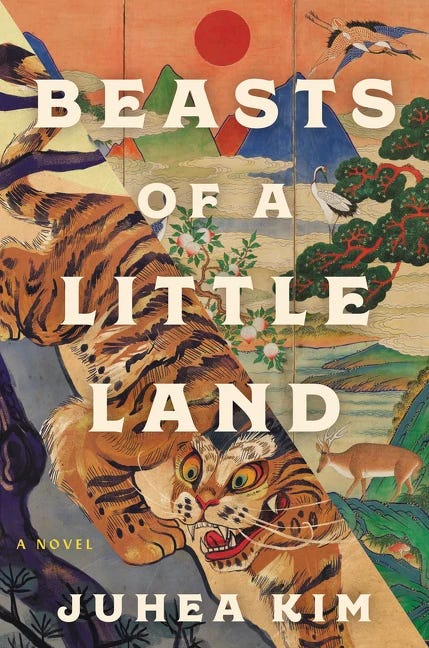
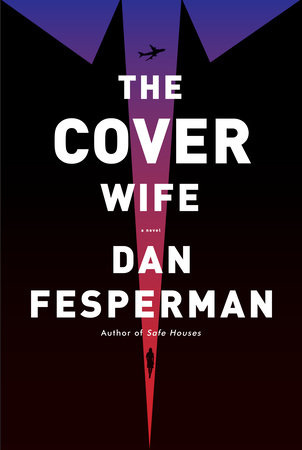
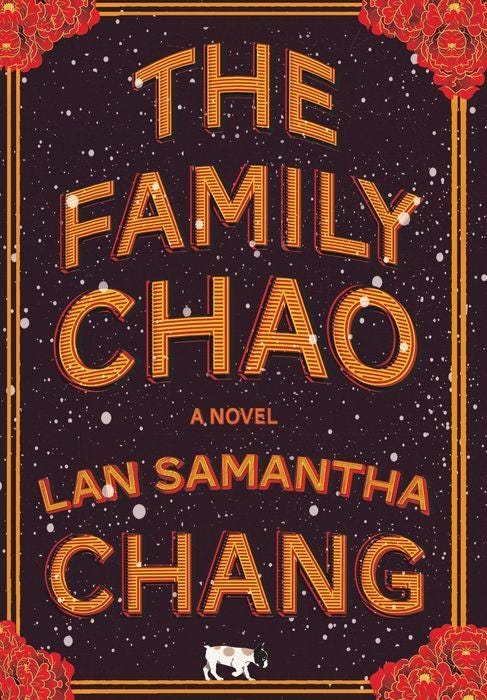
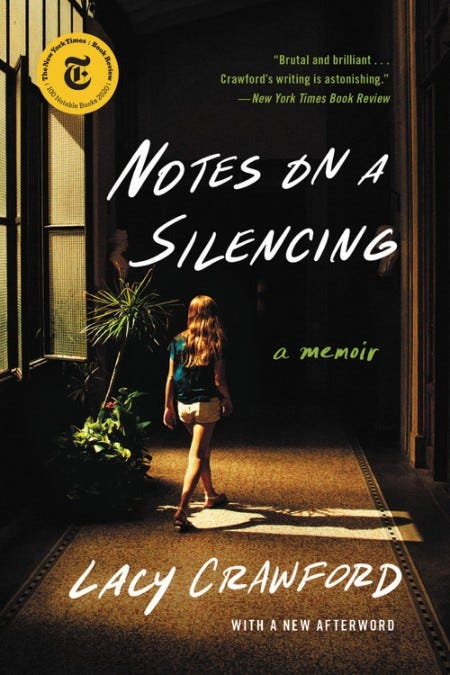

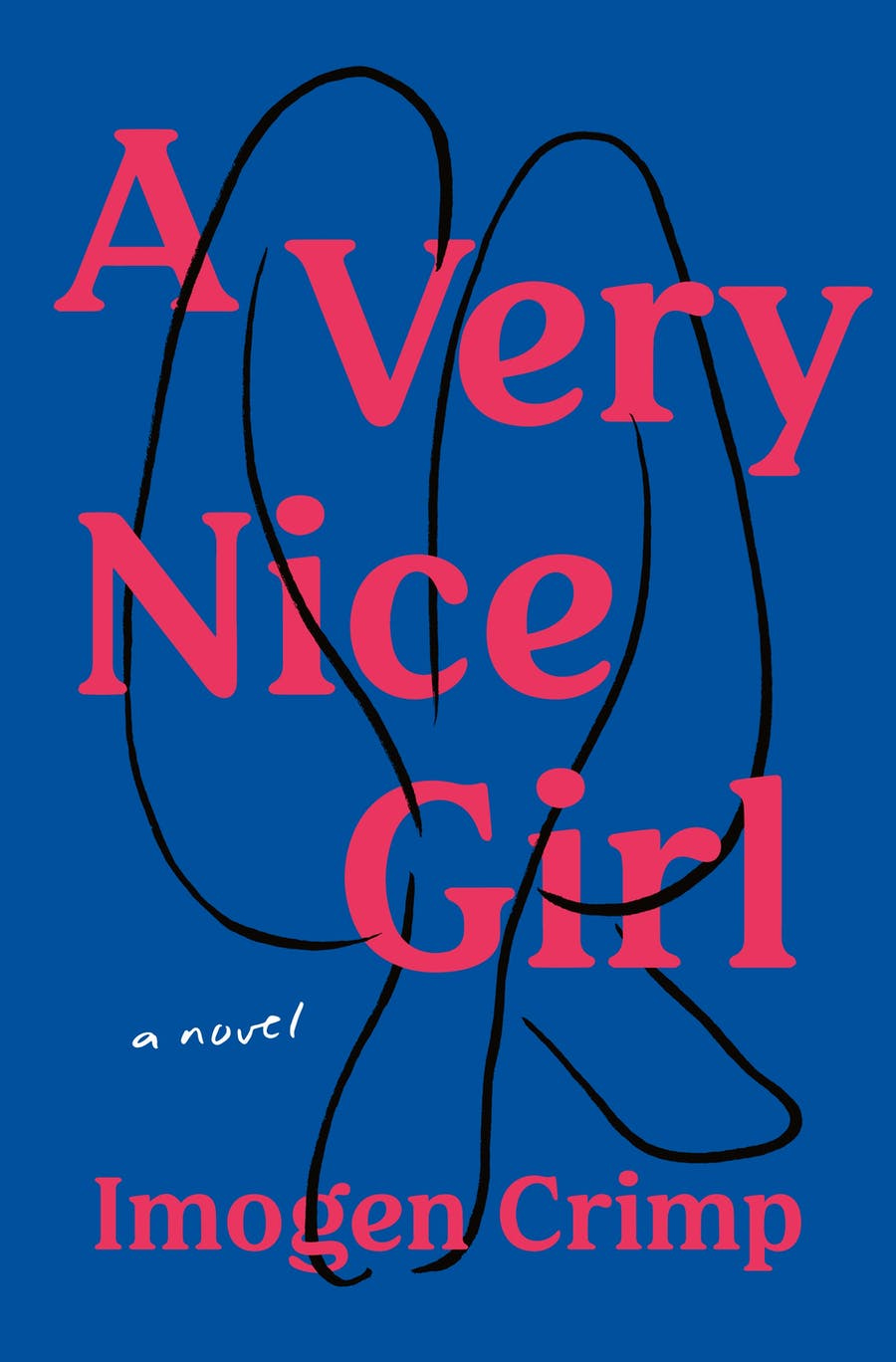
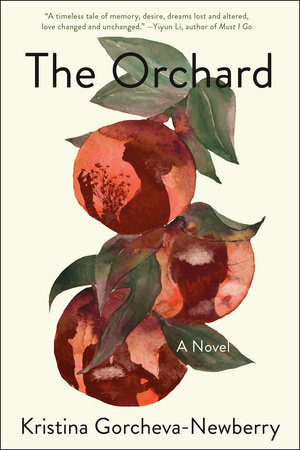
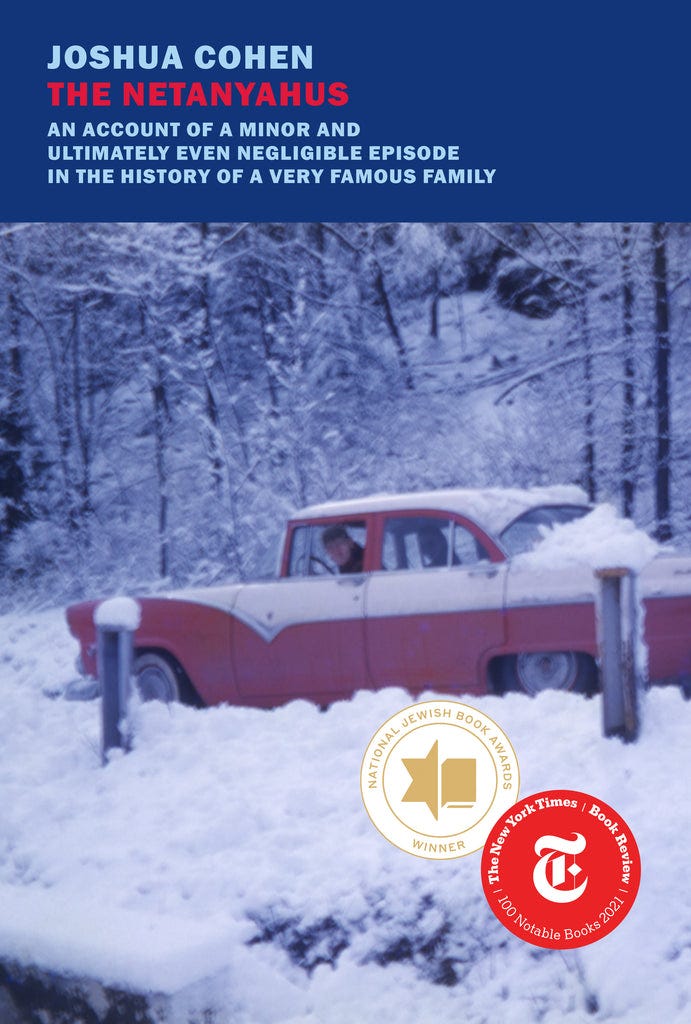
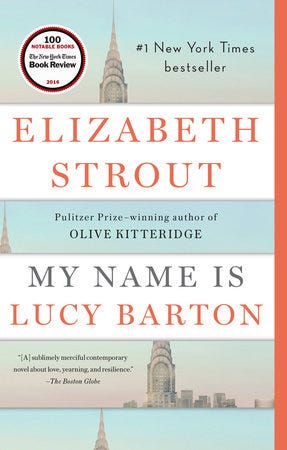
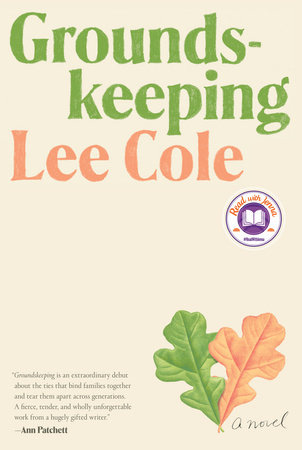
Happy 1 year anniversary! Thanks for these recommendations; I had a couple already on may TBR, and I added two more from your review.